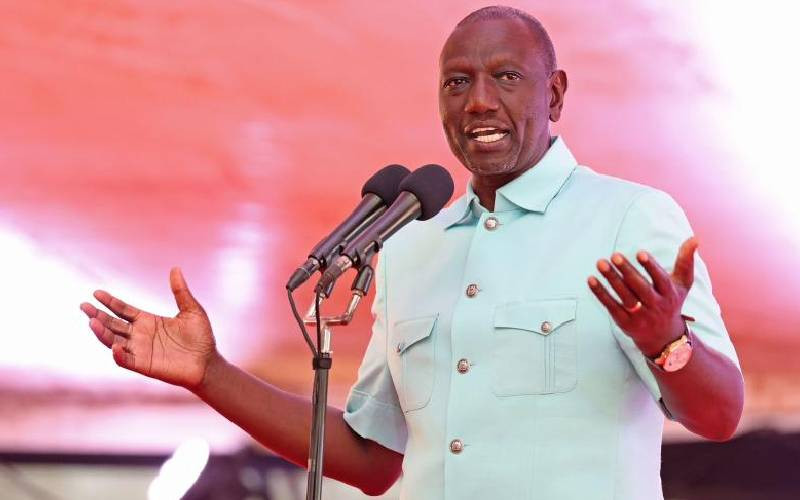×
The Standard e-Paper
Smart Minds Choose Us

President William Ruto, in office since September 2022, seeks recognition as a world leader. He is attention-grabbing, brilliant, and knows that he is brilliant.
With Deputy President Rigathi Gachagua cheering and claiming that Kenya is private company, Dr Ruto believes the Bible, the Constitution, and the Commander-In-Chief's sword empower him to do as he desires - a big mistake full of policy contradictions which undermines his aspiration for local and continental greatness.